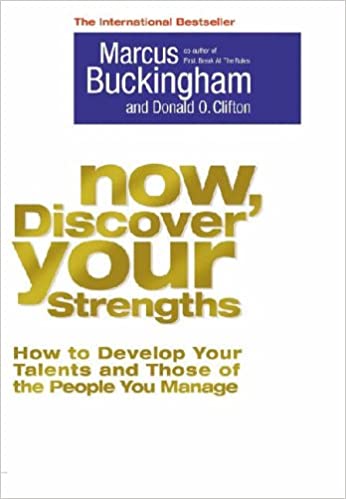
Having managed staff for over 30 years, I am generally a believer in the staff appraisal process. One of its weaknesses however is that it causes managers and their team members to focus on weaknesses and what to do to overcome them or to mitigate their downsides.
However in Now, discover your strengths: How to develop your talents and those of the people you manage, Marcus Buckingham and Donald Clifton argue that effectiveness will be best improved by identifying and exploiting our strengths.
Being honest may be it is easier to use the appraisal to point out someone’s weaknesses than it is to really engage with them and help them to build their strengths.
Buckingham and Clifton provide a Strengths Finder profile to help identify strengths and I have found this to be both insightful and helpful. A valuable additional step for me was to receive the feedback verbally in a one-on-one coaching session – this proved to be a very positive experience.
Since first being introduced to Strengths Finder, I have been trained in how to deliver the feedback myself. Based on my own experience I have learned the following lessons about building one’s strengths:
- We are often unaware of our strengths because they come so naturally to us. This makes it difficult to see what strengths we have and how to develop and utilise them.
- My assessment highlighted two areas that previously I would have thought of as personal values or traits. In recognizing them as strengths I have been able to assess them and increase their effectiveness.
- Because our strengths are so natural we can often expect everyone to see the world the way we do or to deliver what we can. It is so easy to get frustrated by other people’s inabilities and this can distract us from focusing on what we do best. We can also undersell an observation or conclusion that we have drawn as we can assume that what is obvious to us, is obvious to everyone else.
- Whilst we will often think about work as being the best place to develop and utilize our strengths, it might be that particular strengths are best understood and developed outside work eg social contexts.
What about weaknesses? Two comments:
- Some of the weaknesses I have wanted to address in the past have actually been the strengths I see in others that I want to acquire. I am learning to accept the strengths I have and to team with other people so that we can mutually benefit from our collective strengths.
- All strengths have associated downsides. For example the person who is good at including others (Includer) who resents the hint of being excluded themselves and can appear to be a Blocker. The person with Responsibility who is driven by their promises and in the end finds everything a chore. These are the real “weaknesses” that we need to understand so that we are not deflected from using the strength.
Let me encourage you to move away from a focus on your weaknesses and instead to understand your strengths and to realise the increased effectiveness that can follow.
Andrew Kearns
Hartswood Management Ltd
Removing the roadblocks to delivering real improvement